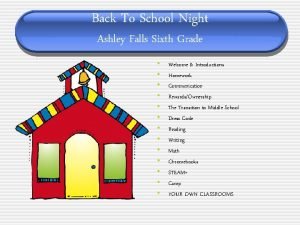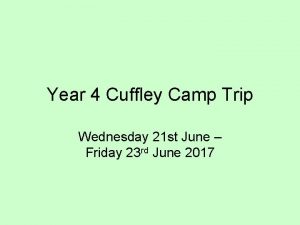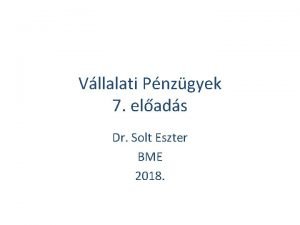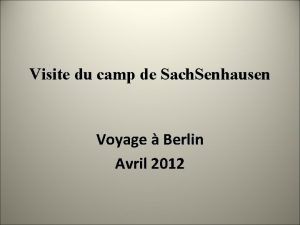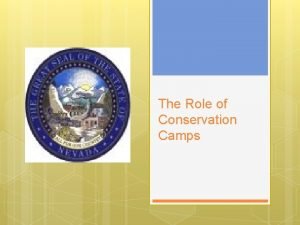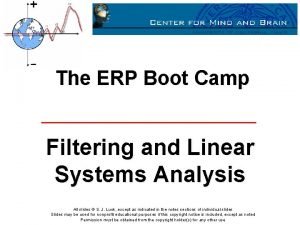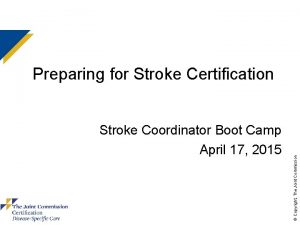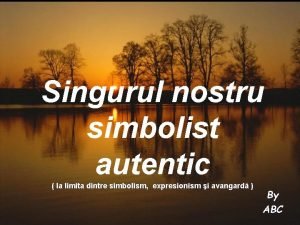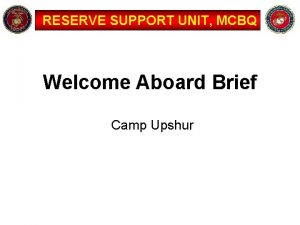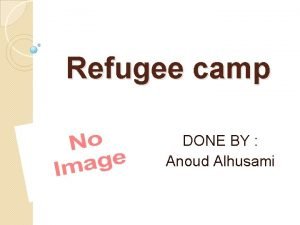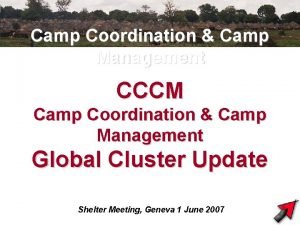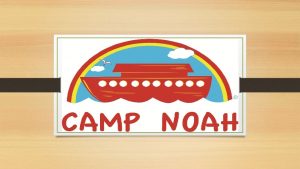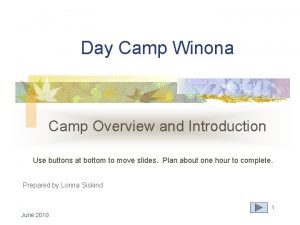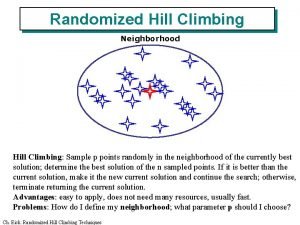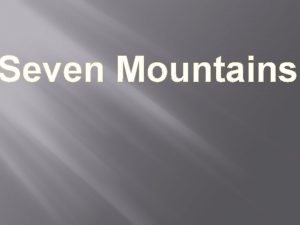English At Camp Hill An introduction to English












- Slides: 12

English At Camp Hill An introduction to English in Year 7 at King Edward VI Camp Hill School for Boys

An Introduction to the Department Welcome to Camp Hill. Hopefully this short presentation will introduce you to the Department and our philosophy. The Teachers Your son will either be taught by: Mr Hill Mrs Parmar Ms Dawson Or Miss Buckley Our Philosophy Here we believe in encouraging and fostering a love of English through introducing students to a range of Literature.

The Year 7 Course – the curriculum map In term one students study: Holidays and travel – introducing them to a range of types of writing – aiming to make them a flexible writer Poetry – here they learn about a range of poetry forms and put together their own poetry anthology In term two students: Are introduced to Shakespeare – his background a range of his plays Roald Dahl’s short stories for adults In term three students: Are prepared for their examinations Learn about the History of the English Language

The Skills we are looking for… You can divide English into three key strands: Speaking and listening Reading Writing Often of course these skills overlap.

The Skills…continued In terms of speaking, we are looking to develop confident speakers, who are able to contribute to both class and group discussions and who are able to listen to others. In terms of reading, we look to develop students’ inference skills – to enable them to read on a deeper level and to begin to think about how writers craft their texts. In terms of writing, we look to develop flexible writers, who are able to write both creatively and analytically.

Assessments As a Department we ask students to undertake a range of activities – this will include group and paired work. Much of the work will be in their exercise books. However once a term we ask students to undertake a folder piece that we mark and keep in school – for example: A Holiday from Hell complaint letter in term one A poetry anthology Some of those pieces will be completed under timed conditions to mimic an examination experience.

How we assess? We generally mark students out of 20 against Department agreed mark schemes and we pride ourselves in valuing self and peer assessment. From our point of view it is vital that students understand how they can improve their work. We have included the mark schemes in your pack – however we would ask you to view these with caution – English is a subjective and skills based subject and the teachers here have a unified understanding of how we interpret them. Do not encourage students to memorise them – instead encourage them to look at their work analytically and to decide what they do well and the areas they need to improve – for example paragraphing or examining the language of a text

Activities run by the Department Just before half term all students in Year 7 and 8 take part in Readathon – they are sponsored to read as many books as they can for charity. This involves spending a week in English lessons reading and then they are asked to read as many books as they can over half term. In the past we have raised at least £ 3000 a year for good causes. In January we run a school poetry competition for all students who study English and publish the winners from each year group on our website – that will be going up soon.

Activities continued… In February we ask students if they wish to take part in a Poetry and Music Evening, where they can read and recite poems that they enjoy or have written. We try to get a local primary school involved in this event. Parents are invited to attend. Last year Colmore Juniors joined us. In March all students in Years 7 -11 take part in a Public Speaking competition. All students are asked to produce a 3 -5 minute speech on a suitably interesting topics. Winners go through to a final, which takes place at the end of the Spring Term We often run theatre trips – depending on what is on. Year 8 this year are going to see ‘Twelfth Night’ on the 11 th of January. Our Librarian is very good at organising author visits with very famous children’s authors – in the past we’ve had Charlie Higson, Jonathan Stroud and Derek Landy to name a few….

Reading We believe, as a Department and as a school, that reading is crucial. And we are lucky as our students are keen readers. I have included a reading list in your pack, but there always new texts students can enjoy. Last year we asked students to produce reading suggestion posters that we could put up in the Department - we will be asking students to do the same thing this year. Please do encourage your son to read.

How can parents help? Discussing work with students – asking them what they have been asked to do Encouraging students to begin to check through their work for careless errors and to take care over their writing Encouraging their reading – see reading list – the library at Camp Hill is excellent and books always make good presents Encouraging them to read non-fiction, as well as fiction; broadsheet newspapers are always excellent Encouraging students to question what they see and read – this helps to develop their analytical skills Listening to their speeches during public speaking and timing it

If you need to contact us… Your first point of contact should always be your son’s English teacher. If you wish to email, then it is your child’s teacher’s name followed by the usual school address e. g. another@camphillboys. bham. sch. uk Otherwise you can contact me: J. parmar@camphillboys. bham. sch. uk (second in charge) Or Mr Hill n. hill@camphillboys. bham. sch. uk Or alternatively your son’s form tutor or Head of Year
